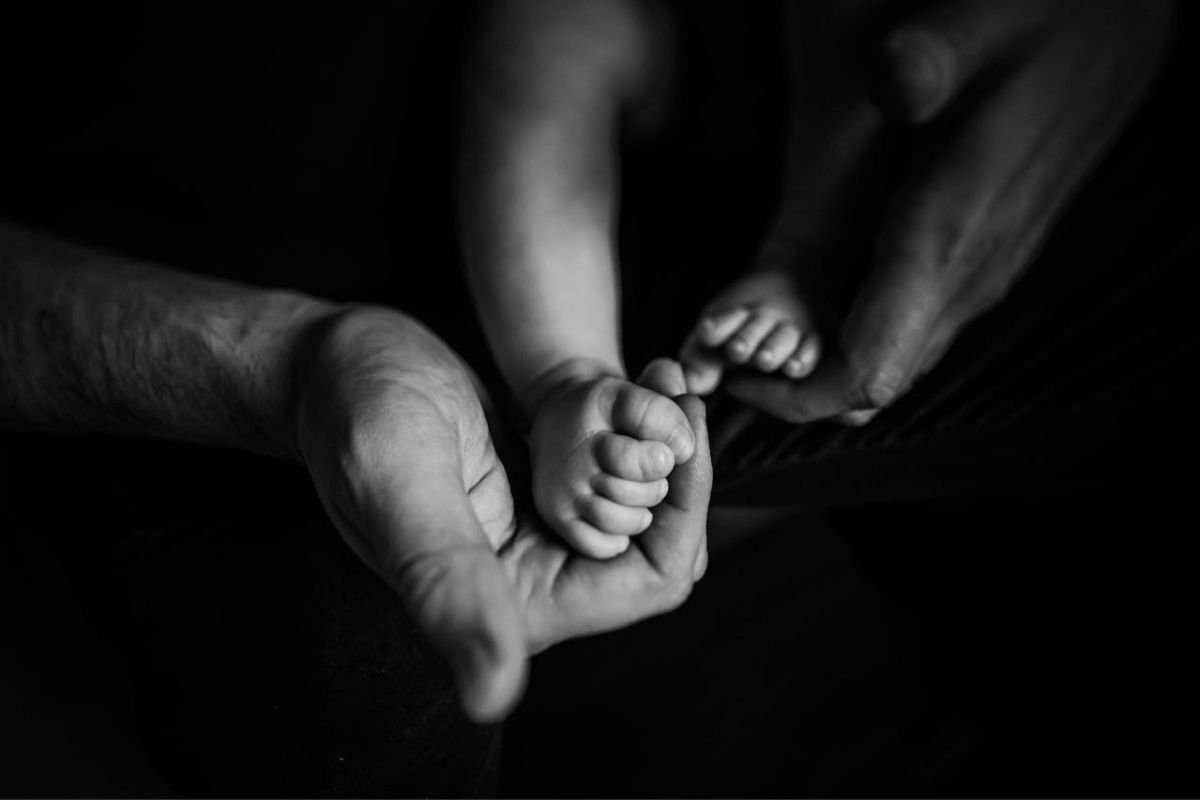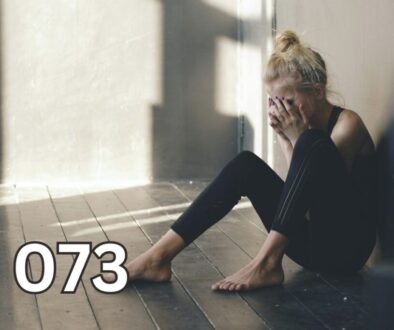Why Self-Love Feels So Hard? It Might Be Because You Were Never Truly Loved

22 JULY 2025
What It Feels Like to Grow Up Unloved
There’s something important, something quietly powerful, that often goes unseen: the three traits of someone who grew up feeling unloved.
1. Emotional Radar: Always on High Alert
People who’ve grown up without consistent love are often incredibly sensitive. But not in a fragile way. More like finely tuned instruments, especially when detecting emotional shifts. A sigh, a pause, a slight change in tone, nothing escapes them.
Why? Because from early on, they had to constantly scan their environment just to feel safe. Was something wrong? Were they in trouble? Would they be accepted or ignored? Hypervigilance became second nature, a survival skill that often looks like empathy.
Over-Giving and Self-Sacrifice
These individuals often bend over backwards for others, not out of manipulation, but from a deep-rooted belief: “To be loved, I have to earn it.” They tune in to other people’s moods, adjust their behaviour, and overextend themselves, because they quietly fear that just being themselves won’t be enough to keep someone close.
Fear of Conflict: When Safety Feels Fragile
If you’ve never had emotional safety growing up, even small conflicts can feel overwhelming. A raised voice or a frustrated sigh doesn’t just sting, it can trigger panic.
In relationships, this can show up as a fear of abandonment. A partner’s impatience might feel like rejection. So they either shut down, rush to fix things, or pull away before they’re pushed away. It’s not a lack of care, it’s a defense mechanism rooted in emotional unpredictability.
2. The Perfectionism Trap
Perfectionism is often a quiet burden carried by the unloved. Every mistake feels like a threat to their worth. Even small flaws spark a spiral of shame and self-blame.
Why does this happen? Because somewhere along the way, they learned: “If I’m perfect, maybe I’ll finally be safe. Maybe I’ll be wanted.” So they push themselves relentlessly. Achieve more. Control everything. But self-forgiveness? That’s still a lesson in progress.
At the Root: A Fragile Sense of Worth
It’s not weakness. It’s not brokenness. It’s the result of not getting the emotional nourishment every person deserves. When love felt conditional or inconsistent, self-worth never had a solid foundation. So they become accommodating, agreeable, perfectionistic, just to feel safe in relationships.
And yet, despite all that, these people are often deeply empathetic, emotionally intelligent, and driven. Their sensitivity is their strength, but it can also be a source of pain when shaped by fear instead of trust.
If you see yourself in this, please know: you are not alone. These patterns don’t make you unlovable. In fact, they’re signs of how much you long for connection, and how hard you’ve worked to find it.
3. When Love Feels Complicated
And finally, this one’s tender, but it’s important.
One trait you may notice in someone who grew up without consistent love is this: they often struggle to fully love others. Not because they’re cold or incapable, but because they’ve never truly felt safe in love themselves. If your own emotional needs went unmet for a long time, it’s hard to know how to give love in a steady, secure way. You’re often too busy longing for it.
Chasing the Feeling of Being Chosen
Sometimes, these individuals seem to “fall in love” quickly. They may form deep attachments to anyone who offers affection or attention. If that person leaves, they’ll hurt, but they may also move on just as quickly when someone else steps in.
To outsiders, this might seem shallow or confusing, like they don’t know what real love is. But what’s actually happening inside is something softer and deeply vulnerable: a deep hunger for connection. For closeness. For a feeling of safety. They’re not using people, they’re searching for the comfort they missed when they needed it most.
When Love Isn’t Always a Choice
Because love has felt rare, they may not pick partners based on compatibility. They choose based on who shows up. Who stays. Who notices. It’s not shallowness, it’s survival. Being loved, in any form, feels so precious that they’ll reach for it wherever they can find it.
But here’s the thing: when someone becomes emotionally strong enough to not need love in order to feel whole, that’s often when real, steady love finds them. Not because they’re playing hard to get, but because they’ve finally built something within themselves. A steady inner stability. A self-worth that isn’t hanging on someone else’s approval.
Why “Just Love Yourself” Isn’t That Simple
That’s why we talk so much about self-love. But let’s be honest, telling someone to “just love yourself” feels empty if they’ve never really felt loved at all.
How can you show yourself compassion if you do not even know what it is supposed to feel like? How do you become your own safe place when you have never experienced one?
This is the real challenge. At its core, self-love means learning to accept even the imperfect parts of yourself. But why is that so difficult for so many people?
Before we try to answer that, let’s take a step back and ask a deeper question:
How did you become the person you are today?
When we explore how our three key relationships shape who we become, it becomes clear that struggles with self-worth rarely begin in adulthood. They are usually rooted in the earliest bonds that formed our understanding of safety, value and connection.
Let’s imagine this together…
The First Imprint: Feeling Unwanted
Imagine coming into the world as a newborn, fresh, wide-eyed, and completely dependent. You don’t know much, but you do know how to cry when you’re hungry, scared, or cold. That’s your instinct kicking in to stay alive.

But what happens if the first person you rely on, your mother, is struggling with postpartum depression?
Instead of warmth, you might be met with a tired, distant gaze. Maybe even one that looks full of pain or resentment. Not because you’ve done anything wrong, but because she’s hurting.
Still, you’re just a baby. You don’t know about mental health. All you see is that the one person who’s supposed to care for you looks upset when she sees you.
So what do you do? You adapt. And somewhere deep in your being, a subtle belief begins to form:
“If she looks at me that way, maybe I’m the problem. Maybe I’m unlovable.”
That’s the first mark on your once-clear inner page:
“I am unwanted.”
The Second Mark: Feeling Not Good Enough
As you grow, those early impressions don’t just vanish. If your environment stays harsh, unkind, or emotionally distant, more marks get added.
Maybe you scraped your knee and cried, only to hear:
“You’re so dramatic.”
Or maybe you were bullied at school and your parent asked:
“Why didn’t you stand up for yourself?”
Again, you adapt. Not because those words are true, but because children are wired to protect their connection to caregivers, even if that connection comes at the cost of their own self-worth.
So another painful belief forms:
“I am weak. I’m a disappointment.”
How the Mind Tries to Stay Safe
Over time, your once-blank canvas, your sense of self, becomes scribbled over with criticism, blame, and shame. Psychologists sometimes call this “identification with the aggressor.”
It’s a survival strategy. To feel safe, a child unconsciously aligns with the person causing the pain. If you believe they’re right and that you’re the problem, it gives you the illusion of control: “If I change, maybe they’ll love me.”
You don’t choose this. It just happens, quietly, deeply, and automatically.
Carrying the Wounded Self
Eventually, you carry this inner picture everywhere.
So when someone criticises you, even kindly, it doesn’t feel like helpful advice. It feels like another mark on an already sensitive place.
Why?
Because the image you hold of yourself is already covered in old scars. And there’s barely any space left for more.
When Protection Becomes Isolation
So you protect yourself.
You withdraw. You get angry. You build walls, not because you’re cold or distant, but because you’re scared. Scared that someone might see the version of you you’ve come to believe is true.
And that thought? It’s unbearable.
So you keep hiding. You stay busy. You push people away, just to avoid facing what you fear might be real.
The Picture You Didn’t Choose
But when you’re finally alone, without distractions, no noise, you’re left staring at that inner picture. And sometimes, it feels overwhelming.
The shame.
The sadness.
The fear that maybe you are too damaged to repair.
But here’s the truth:
That picture? It was never really yours.
It was drawn by people who did not know how to love you in the way you needed.
They handed you their pain, their confusion, their limitations, and somewhere along the way, you began to believe it was all about you.
This is often how unresolved family patterns repeat across generations, quietly shaping identity, relationships, and self-worth long after childhood has ended.
That is how so many of us come to define ourselves: not by who we are, but by what we lacked.
Why Self-Acceptance Feels So Hard
This is why self-acceptance can feel like trying to love a stranger. Because if you were never truly seen or accepted in the first place, how could you possibly know how to offer that to yourself?
Even admitting this out loud brings an ache, doesn’t it?
It’s hard to speak the truth when the truth hurts.
But here’s the thing: avoiding it doesn’t make it go away.
A New Story Can Begin
Seeing your story clearly, even if it stings, can be the start of something new.
A shift.
A gradual kind of rebirth.
So why is it so hard to love ourselves?
Because maybe, for some of us… we were never truly loved in the way we needed.
But just because life didn’t give you a reset button doesn’t mean you’re stuck.
You’re not doomed to repeat a life shaped by old wounds.
You are allowed to rewrite the story.
You Are Not Your Wounds
You can look at those painful marks and say:
“That’s what happened to me, but it’s not who I am.”
You were never meant to carry shame for the love you didn’t receive.
Healing doesn’t mean pretending it didn’t hurt. It means recognising that while you were shaped by others, your healing now belongs to you. This is where self-responsibility becomes powerful, because lasting change begins when you focus on your own growth rather than waiting for someone else to repair the past.
It means learning to care for yourself in all the ways you once needed.
It is not too late.
You are not beyond repair.
And no matter what your past looked like, your future does not have to repeat it.

Even though I know it’s not easy, I want to encourage you to keep exploring.
Maybe that means reading more about emotional healing from childhood wounds. Maybe it’s finally reaching out to a therapist. Or maybe… it’s just imagining someone in your life who truly sees and accepts you.
And if that person does not exist?
You can create them in your mind.
Let your inner child speak freely.
Whisper to yourself:
“No matter what you do, no matter who you are, I still love you. I’ve got your back.”
That’s where self-love begins.
What Real Self-Love Looks Like
But let’s pause for a second, what does self-love actually mean?
A lot of us grow up thinking it’s about luxuries: buying nice things, indulgent meals, collecting experiences. And sure, those can be part of it. But real psychological self-love? It runs deeper.
True self-love is choosing to slow down. It’s listening to your body, your emotions, your fatigue, your joy. It’s making space for it all without judgment.
It’s also about choosing new patterns, healthier, kinder ones, even if you do it one small step at a time.
Less Noise, More Depth
Sometimes, we think loving ourselves means being constantly surrounded by people, staying busy so we don’t feel lonely.
But the truth?
One emotionally safe relationship often brings more healing than ten shallow ones.
And then there’s this idea that self-love means being tough all the time. Holding it all together. Never breaking down.
Ironically, the deepest kind of self-love is letting yourself fall apart when you need to. And still choosing to stand by your side, no matter what.
You Don’t Have to Choose One Side
We often think we have to be one thing, driven or lazy, generous or selfish, loving or lustful.
But you know what? You can be all of it.
Self-love isn’t about choosing one part of yourself and rejecting the rest. It’s about letting those parts coexist.
In psychology, real healing begins when your emotional side (your inner child) and your idealistic voice (your inner critic or superego) stop fighting. When they learn to work together, not against each other.
That’s what being whole means.
The Power of Slowing Down

So if you’re still reading, I invite you to slow down with me.
Psychology isn’t like other subjects. It doesn’t ask you to memorise facts. It asks you to feel. To be honest. To look inward with tenderness.
And if you’ve ever felt anxious, exhausted, or weighed down by sadness, remember: the worst thing you can do is rush the healing.
Real emotional growth takes time. Intentional time. Stillness. Patience.
Be honest: are you a little impatient in daily life? Do you speak quickly, feel like there’s never enough time?
That’s okay. We all are.
But healing from past pain begins when you slow down just enough to notice what’s going on inside.
Growth Comes Gently
Every line in this article might land differently depending on where you are in life. And that is the beauty of inner work. You grow into it.
In the world of psychology, there’s one thing that’s surprisingly rare:
Patience.
But here’s the secret: once you bring patience into the process, something shifts.
Slowly, the words start to resonate.
The lessons begin to land.
And without even realising it, you start to change. Not dramatically or all at once, but gently, from within.
A Quiet Thank You
So thank you for taking this time, for reading, for reflecting, for sitting with yourself.
That alone is a meaningful step forward healing.
Keep going. You have already begun.
See you next time.



